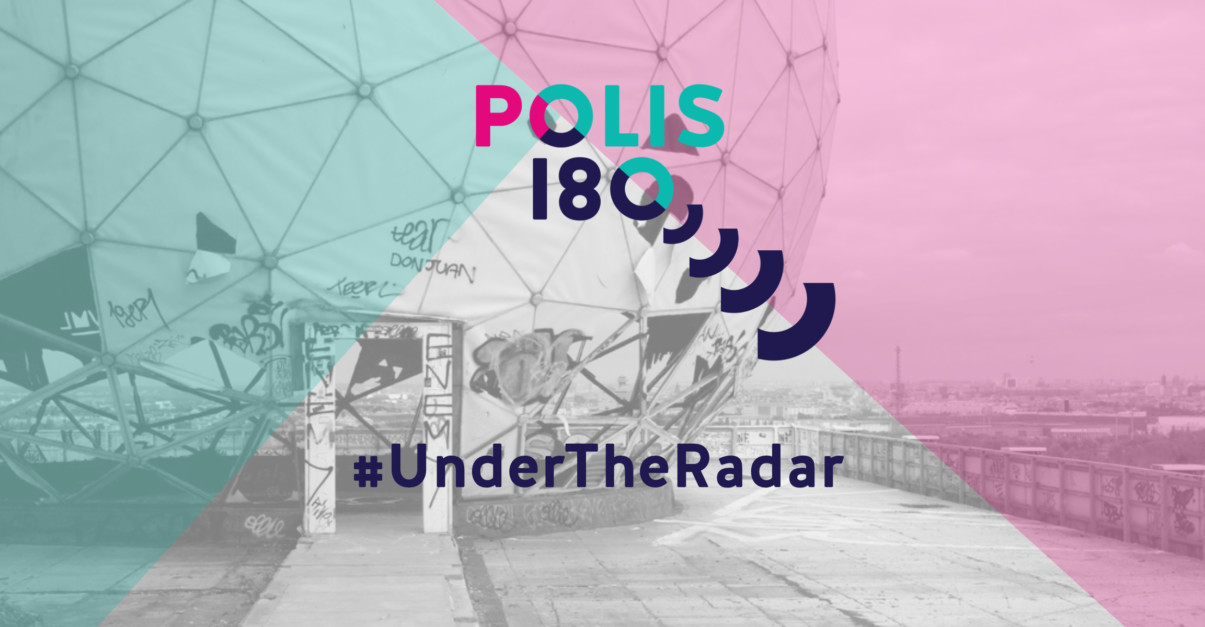In another episode of #UTR, the Polis Blog presents four news stories that undeservedly slipped through the cracks of last month’s media attention.
A Column by Anne-Kathrin Glück
In 17th Century England, Thomas Hobbes illustrated the governing body as a product of a nation where the ideal sovereign rightfully exercises absolute power over the untamed nature of mankind. From then on Europeans went through three long centuries of bloody wars and numerous political systems until the sovereign power eventually fell into the hands of the people and the constitution of liberty slowly outdated the concept of statehood. In this day and age one can feel a new and very complex desire for political change which leads to the many faces of globalisation. In order to meet all the present challenges it is necessary to deal with the impacts of globalisation, deliberately encourage public debates and maybe introduce a new age of enlightenment, before evoking memories of physical and mental borders.
Polis Programme European Union: Marshall Plan for Africa
In his state of the union speech, the President of the European Commission Jean-Claude Juncker has set terms to create a new European External Investment Plan to encourage European expenditure in Africa. In an attempt to revive the EU’s sluggish Neighbourhood Policy and rebuild partnerships with African countries such as Somalia and Sudan, Juncker is determined to raise up to 88 Billion Euro and receives public support from EU members. Austria’s chancellor Christian Kern agrees with the idea of a new Africa-Marshall Plan stating that Juncker’s strategy meets with the mutual interest of EU members to tackle the roots of migration.
Why should this be on our radar? In order to control migration flows from Africa and the Middle East, the European Union may eventually overcome the intergovernmental nature of its Neighbourhood Policy and help to attract private investors supporting the Commission’s proposal.
Polis Programme Migration: UK Integrity Outweighs Scottish Interest
England, Northern Ireland, Scotland and Wales are currently discussing the impacts of Brexit on UK immigration with Scotland finding itself in an isolated situation as Nicola Sturgeon fights to avoid limitations on migration from Europe. According to the Scottish first minister, Scotland depends on the labour market integration of migrants due to a skill gap in its workforce and an ageing population. However, Theresa May’s government refuses to concede the right to an individualised immigration policy. May argues that at the moment the priority is to protect the UK’s integrity while negotiating with the EU. Moreover, the British Prime Minister says that the vote to leave the EU was the public voting against migration from the EU and that should be accepted.
Why should this be on our radar? Northern Ireland and Scotland have voted against Brexit. The obvious tensions in the UK lead to the question whether Scotland is preparing for another Independence Referendum.
Polis Programme Peace & Security: Battles Over Oil Assets in Libya Impair Diplomacy
Stagnating negotiations over the multi-dimensional conflict in Libya puts the international community’s intention towards Libyans in question. The most recent high-level meeting which was lead by French Foreign Minister Jean-Marc Ayrault again indicated that various foreign interest groups hamper Libya’s peacebuilding process. Just before the Paris meeting, the Western coalition has published a joint statement supporting Fayez Mustafa al-Sarraj’s government after important oil terminals came under attack. Jean-Marc Ayrault explained that the main reason to keep Libya’s oil resources under al-Sarraj’s authority is to rebuild the war-torn country.
Why should this be on our radar? There is unfortunately little to no evidence that the international community prioritises the need to solve the ongoing humanitarian crisis in Libya, even though the anarchical situation facilitates human trafficking to Europe.
Polis Programme Digitalisation & Data Security: Smart City = Vulnerable City?
According to a new survey conducted by the international market research provider Dimensional Research, cyber attacks targeting smart city services pose serious threats to public safety. No doubt, fast internet connection speeds provide great efficiency for metropolitans. But without appropriate security measures vulnerable technologies of cities and their infrastructures remain an easy target for cyber-hackers. Experts therefore urge to consider the protection of the public a key element when building smart cities.
Why should this be on our radar? Security holes are often discovered after testing new technologies. That is when security measures are considered necessary, but maybe that will change in near future.
In this editor’s column, newsworthy issues in foreign policy that slipped through the cracks of public attention are informally listed in a Top 4 linked to the four Polis180 Programs European Union, Migration, Peace & Security and Digitalisation & Data Security.
Image source: „teufelsberg ii“, von Büsenfeld, http://bit.ly/1RMYPlj, lizensiert unter Creative Commons license 2.0.: https://creativecommons.org/licenses/by/2.0/.
